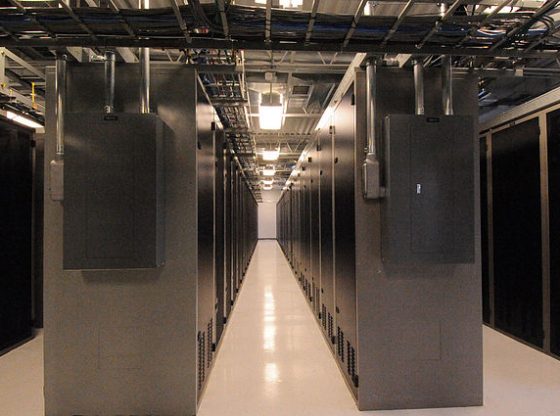The internet ended nearly seven years ago—at least according to Sen. Bernie Sanders of Vermont. Without net neutrality, it was all over.
“This is the end of the internet as we know it,” Sanders tweeted in 2017, when President Donald Trump ended the Obama administration’s neutrality rules. “In Congress and in the courts we must fight back. #NetNeutrality”
The controversy even gave rise to a meme: “Day 4 without net neutrality: the kids found a half-eaten raccoon we can eat… We’re burning furniture to stay warm.”
Even still, could these dark forewarnings come true?
Tomorrow, the Federal Communications Commission (FCC) is expected to restore net neutrality by utilizing an antiquated 1930s-era legal framework. This decision will inhibit Internet Service Provider (ISP) growth and access and affordability for millions of Americans—a fact that net neutrality activists seem to be ignorant of, and a fact that merits alarm.
Neutrality has been a core principle of the internet since its genesis. The FCC’s early rulings reflected this, focusing on universal access, standardized protocols, and a light regulatory touch for ISPs. This was designed to foster investment and innovation.
Between 1996 and 2015, there was investment of roughly $1.5 trillion in broadband technology by service providers. In 2015, the FCC under President Barack Obama issued the “Open Internet Order” which mandated the reclassification of ISPs as telecommunications services, thus opening them to increased regulation by the FCC.
This was done after a massive information campaign, with every major news outlet and media personality chiming in on the issue. Claiming to secure “open and free access” to the internet, the FCC maintained its regulatory oversight for two years until 2017 when the FCC under President Trump voted to undo the Open Internet Order to “Restore Internet Freedom.”
Restoring market freedom enabled ISPs to invest in infrastructure and expand internet access. These are the stated broadband policy objectives of the Biden administration, but its regulatory approach does not comport with the data, which demonstrates that net neutrality handicaps ISP expansion and affordability. During the two short years under net neutrality, the FCC cited research showing that capital expenditures by ISPs were reduced by $3.6 billion, undermining the ability of companies to expand their access and improve service to their consumers.
Proponents of net neutrality often conflate the contexts in which telephone providers operated in the 1930s and the environment in which ISPs operate today. The telephone companies of yore were, in essence, unnatural, government-created monopolies. The Telecommunications Act of 1934, from which Title II common carrier classification is derived, was designed to keep a tighter leash on the monster which government policy had created.
This isn’t the case today. ISPs are not government-created monopolies. They are corporations operating in the free market and are not propped up by government policy to the extent that corporations like Bell were 100 years ago. By attempting to classify the internet as a telecommunications service, the FCC has opted to impose draconian regulation on the internet to protect it from the “boogeyman” threats of throttling and price discrimination that are, in fact, not real.
Might their motivations be more nefarious than we realize? Americans should be skeptical of net neutrality because it provides additional avenues for government oversight and censorship. When the Patriot Act was introduced in the aftermath of 9/11, our government assured us that its newly acquired tools for surveillance would only be used to spy on terrorists, not everyday Americans. We now know that the government abused its power and expanded surveillance outside its original scope. Why would we again trust it with additional surveillance capacities? Perhaps unsurprisingly, one new justification provided for net neutrality is that an unregulated internet is a national security risk.
The curious nexus between Big Tech and the federal government that worked to censor Americans who spoke against the prevailing narrative on vaccines and viruses is the same nexus that today is advocating for strict market controls of the internet.
Utilizing an Orwellian notion of “neutrality” to impose pervasive government oversight of the internet typifies an impulse that inundates modern political discourse: “Let the government take care of it. They want what’s best for us!” No. The issue of net neutrality provides an opportunity for market-based economics to shine.
It is unfortunate that the Biden administration has chosen to go down the path of burdensome oversight. When ISPs are finally hit with these proposed regulations, they will again be forced to operate under conditions that will inhibit growth and innovation and hamper broadband expansion. That’s not just harmful to the internet companies, but it’s also bad for customers’ wallets and for Americans who constantly grow suspicious of their government, and who have every reason to believe that this newfound opportunity will be used to monitor, censor, and suppress speech it doesn’t like.












